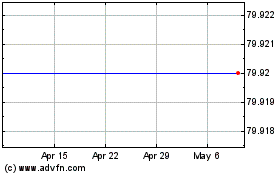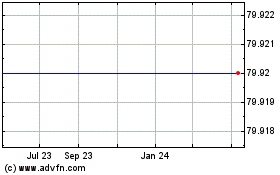By John D. Stoll
Leslie Wexner was among the pathfinders for American business in
China in the 1970s, shunning the official channels in Beijing for
Shanghai, making big investments on essentially a handshake.
"I just met a businessman somewhere, and he trusted me, and I
trusted him, and we started doing things," Mr. Wexner, the
81-year-old founder of L Brands Inc., said in a talk at Harvard's
Center for Public Leadership.
If trust helped make Mr. Wexner a retailing legend, though, it
is tormenting him now. Mr. Wexner had a personal and professional
relationship with accused sex trafficker Jeffrey Epstein, the
disgraced financier who likely hanged himself in jail last week.
That relationship was crucial in building the wealth and prominence
Mr. Epstein used to exploit young women.
How could a man who amassed billions selling bras, bluejeans and
bath salts to women put so much trust in Mr. Epstein for two
decades? Mr. Wexner claims his former associate misappropriated
vast sums of money.
It's a question that brings into focus the role trust plays in
American business. Long seen as nearly as essential as money for
the economy, it is as powerful as it is dangerous. Trust serves as
the secret sauce in every transaction, business plan and employment
arrangement. But, behind every Ponzi scheme, market meltdown and
corporate fraud lies a serious case of misplaced trust.
Roderick Kramer, a social psychologist teaching at Stanford's
Graduate School of Business who has long studied trust and
business, explained the downside to me. Most successful business
folks are risk takers, he said. Risk requires trust, and leadership
types tend to overestimate their ability to size up people or
situations.
Harry Wexner was no psychologist, but in a quiet moment on a
Florida beach long after his son had become a success, he warned
Les that he had to be careful not to be too gullible.
"What I'm worried about is you're optimistic, you think the
world is full of goodness," Harry Wexner said, encouraging him to
brace for disappointment. "You're just optimistic and naive."
Recalling the story years later during a recorded interview, Mr.
Wexner agreed with his father.
Mr. Kramer wrote about this after the financial crisis and the
Bernie Madoff Ponzi-scheme scandal in the second half of 2008. He
described interactions between Stanford M.B.A. candidates in the
negotiations class he was teaching. The future leaders of American
business were too trusting.
About 95% of M.B.A. students were routinely placing themselves
in the upper half of the class when rating their ability to size up
the trustworthiness, reliability and honesty of fellow classmates.
More than three-quarters put themselves in the top 25%, while 20%
placed themselves in the top 10%.
Mr. Kramer said he hasn't updated his study of M.B.A.s in
several years. Pew Research Center data indicates today's younger
set is more jaded and skeptical than students from a decade ago, in
fact.
Regardless of how the data shakes out in 2019, overconfidence
still carries potentially disastrous consequences. Just look at how
many accomplished engineers and scientists left good jobs to join
Theranos. The defunct blood-testing company, founded by Elizabeth
Holmes, is accused of perpetrating Silicon Valley's biggest fraud
because few people bothered to verify Ms. Holmes's claims.
The ability of executives at WorldCom or Enron to pull the wool
over our eyes is the stuff of legend, but we often forget that
misplaced trust happens every day in the normal course of business.
And it's sometimes those we trust most who make the biggest
errors.
Alan Greenspan, the former Federal Reserve chairman, was revered
in the finance community before the Great Recession. During a 2008
appearance before a congressional committee, he pinned the crisis
partially on misplaced trust in financial institutions that failed
to put the public first.
"Those of us who have looked to the self-interest of lending
institutions to protect shareholder's equity (myself especially)
are in a state of shocked disbelief," he said, calling his
hands-off governance philosophy a mistake because it assigned too
much trust to flawed executives.
The consequences of misplaced trust can vary. Mr. Madoff's
victims incurred upward of $65 billion in losses. Theranos
employees lost jobs; investors lost millions of dollars; board
members and advocates lost their reputations. The consequences for
Mr. Wexner, who wrote recently that he is embarrassed by Mr.
Epstein's deception, are still unclear.
Alexander Stein, a human-behavior expert and founder of Dolus
Advisors, consults on white-collar misconduct and said we get duped
because we "outsource trust."
"It becomes less about who we trust and more about what we
trust," Mr. Stein said. "It's not the person, it's the image of the
person, or the persona and the brand." Ms. Holmes is said to have
courted people -- including former Secretary of State George Shultz
and top executives of Walgreens -- with penetrating blue eyes that
rarely blinked, an unusually deep voice and a wardrobe of black
turtlenecks that evoked Apple Inc. co-founder Steve Jobs.
He said Mr. Epstein built a coalition of "co-conspirators" with
the help of mansions, private planes, good looks and savvy
conversational skills.
Mr. Wexner wasn't available for comment, and he has rarely
spoken publicly about Mr. Epstein. At Harvard, a decade ago, he
owned up to making bad judgment calls that at the time didn't seem
unethical, but in hindsight were clearly ill-advised. Following a
moral compass can be tough and complicated, he said, but
necessary.
Even the most moral among us make mistakes that have shadowed
us. This is tough for Mr. Wexner, who spent much of his time and
fortune trying to carve out a legacy that doesn't resemble Mr.
Epstein's.
When asked what he wanted to be known for, Mr. Wexner recently
said he doesn't want to be remembered as the guy who created the
sexiest thongs or comfiest hip-huggers. "No one remembers who sold
the most togas in Rome," he said. He has spent decades giving away
millions to various causes, including Ohio State University, the
United Way and children's hospitals.
But Mr. Wexner acknowledged in the same talk that there's a flip
side: "People remember the great villains more than they remember
the great heroes."
Write to John D. Stoll at john.stoll@wsj.com
(END) Dow Jones Newswires
August 16, 2019 16:18 ET (20:18 GMT)
Copyright (c) 2019 Dow Jones & Company, Inc.
L Brands (NYSE:LB)
Historical Stock Chart
From Mar 2024 to Apr 2024

L Brands (NYSE:LB)
Historical Stock Chart
From Apr 2023 to Apr 2024
